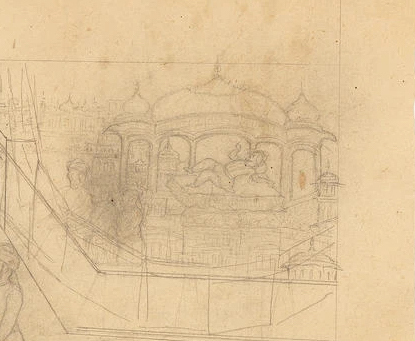Explore the legacy of Bhai Santokh Singh, renowned poet and historian, known for his epic writings and contributions to Sikh literature.
Discover Sujan Singh Sodhi, the visionary Sikh educationist and reformer who played a pivotal role in early 20th-century educational initiatives.
Discover the life of Tej Bhan, affectionately known as Tejo, father of Guru Amar Das, with deep roots in the Bhalla clan from Punjab.
Explore Yahiya Khan's tumultuous reign as Lahore's governor, the Chhota Ghallughara, and the power struggle with his brother in 18th century Punjab.
Discover the legacy of Raja Amar Singh of Patiala (1748-1782), his conquests, political alliances, and the pivotal role in shaping the powerful state.
BHAGRANA, village 20 km from Rajpura (30° 28`N, 76° 37`E), in Patiala district, is celebrated for its Gurdwara Nauvin Patshahi. Some old accounts assign this shrine to the neighbouring village of Dadu Majra, but it falls now within the revenue limits of Bhagrana. Guru Tegh Bahadur halted here in the course of one of his journeys through this region. Two Sikhs, Bhai Amaru and Bhai Diala, served him with devotion.
BIKRAM SINGH, RAJA (1842-1898). born in January 1842, succeeded his father, Wazir Singh, to the throne of Faridkot state in 1874. A dominant figure in Faridkot history, Raja Bikram Singh modernized the state administration. He employed retired British officials of experience and in 1875 set up offices and courts on the British model and adopted British law. Schools and charitable hospitals were opened and dharamsalas and rest houses for travellers constructed. Sadavarats or free kitchens were established at Faridkot, Thanesar and Amritsar. Sanskrit pathshalas, or schools were started where free food was served to the students.



